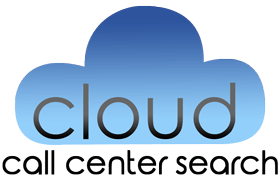Remote Call Center Technology Spotlight: UCaaS & CCaaS

Call center leaders have been forced to make hard and fast decisions in response to COVID-19 regulations. The result has been forcing many operations and their respective agents to go remote essentially overnight.
Ready or not, this unprecedented disruption has increased the industry’s focus on technologies that call centers can leverage and deploy rapidly to stand up a remote workforce.
Last year, Gartner projected a 17 percent growth to the cloud services market, approaching $300B in revenue in 2020. The exponential impact of the COVID-19 pandemic will only scale these projections as leaders must coordinate measures to get work done remotely and build for the long-term.
Call centers have been slower to adopt cloud-first technologies, with 70 percent of core call center communications still operating on premise-based systems.
Proponents of cloud technologies, like UCaaS and CCaaS systems, argue that early adopters will reap the greatest rewards. I will go a step further and say that the most successful remote, agent-driven contact centers are the ones that bring UCaaS and CCaaS together in the cloud.
Why UCaaS?
Unified Communication as a Service, or UCaaS, connects backend insights and operational data across your enterprise, from instant messaging and business directories to telephone communication, through a single cloud provider. They all also provide tools for internal collaboration which in our modern world are necessities.
Let Us Show You Which UCaaS Vendor is Best for You
Why CCaaS?
A Contact Center as a Service, or CCaaS, provides some of the same cloud functionality as your UCaaS system, just directed toward your call center needs with a heavy focus on the operational functionality required to run a contact center. From CTI, IVR, email, SMS, social media — your CCaaS solution brings together every feature that comprises a conventional contact center into the cloud. Not all CCaaS vendors are created equal and not all are quite yet omnichannel so it is critical to do your due diligence.
Let Us Show You Which CCaaS Vendor is Best for You
Why Together?
UCaaS and CCaaS have worked in tandem to digitally transform premise-based organizations for quite some time, but they are directed at different users with different challenges and are often siloed from one another. To use an analogy, they were athletes at the same school but playing very different sports.
Luckily, the industry has recognized the need for increasingly integrated platforms that connect your back office staff and contact center agents under one platform. That means one single source of truth to increase efficiency, and one platform for IT to manage.
Here are some other benefits of UCaaS and CCaaS working as one:
Benefits of UCaaS and CCaaS Together
Stronger Collaboration
Traditionally, with a premise-based system, call center agents have been hamstrung by the limited operational visibility due to outdated systems or siloed interactions.
By connecting UCaaS and CCaaS together in the cloud, agents can solve customer challenges with insights and information from other departments in your organization.
For example, if a customer calls your agent with an emergency technical question, they won’t be satisfied if they’re simply given another number to call. A unified platform can allow agents to connect customers to the proper contacts and even front-load the context of the situation to your product teams or IT contacts for a more seamless handoff.
Better Customer Experiences
Your call center agents are very likely focused on a handful of top priorities, whether cold calling, retention activities, or other revenue generating tasks.
But these same agents are often the first-line of contact for any and all inbound engagements. Pairing your CCaaS and UCaaS systems together gives them the tools and data to be adaptive and deliver elevated experiences.
For example, if a customer calls your agent with a question on billing, or requesting a direct line to an internal employee, that call center agent can access the stored billing data or employee directories across your connected systems to quickly resolve these customer issues and speed along processes.
Reduced cost of communications
On their own, UCaaS and CCaaS are already highly-sought solutions to reduce costs. With these systems, business leaders do not have to choose a collection of vendors to piece together their telephony services, video conferencing, or omnichannel agent environments. They are active and updated in the cloud.
By bundling UCaaS and CCaaS together, companies get complete functionality from one cloud-hosted platform. This offers friction-free access to your most important tools, increasing efficiency and cost-driving ROI — but it also protects your organization from long-term costs, like hardware upgrades and expensive IT management hours.
With one, unified platform bridging UCaaS and CCaaS together, you’ll have complete visibility into all your enterprise communication tools, available 24/7 in the cloud.
Do You Have the Technology to Support Remote Call Center Agents? Find Out!
Many contact centers have already proven you can deliver stable and scalable services remotely. For everyone else, the time has come to build a cloud environment that can get remote work done.
If you’re worried about how to get the cloud technology you need or where to start, let us help.
Our industry experts are ready to answer any and all questions to help deploy your remote workers with the agent-driven technology they need to thrive.
Contact Cloud Call Center Search for your free, no-risk consultation today.




